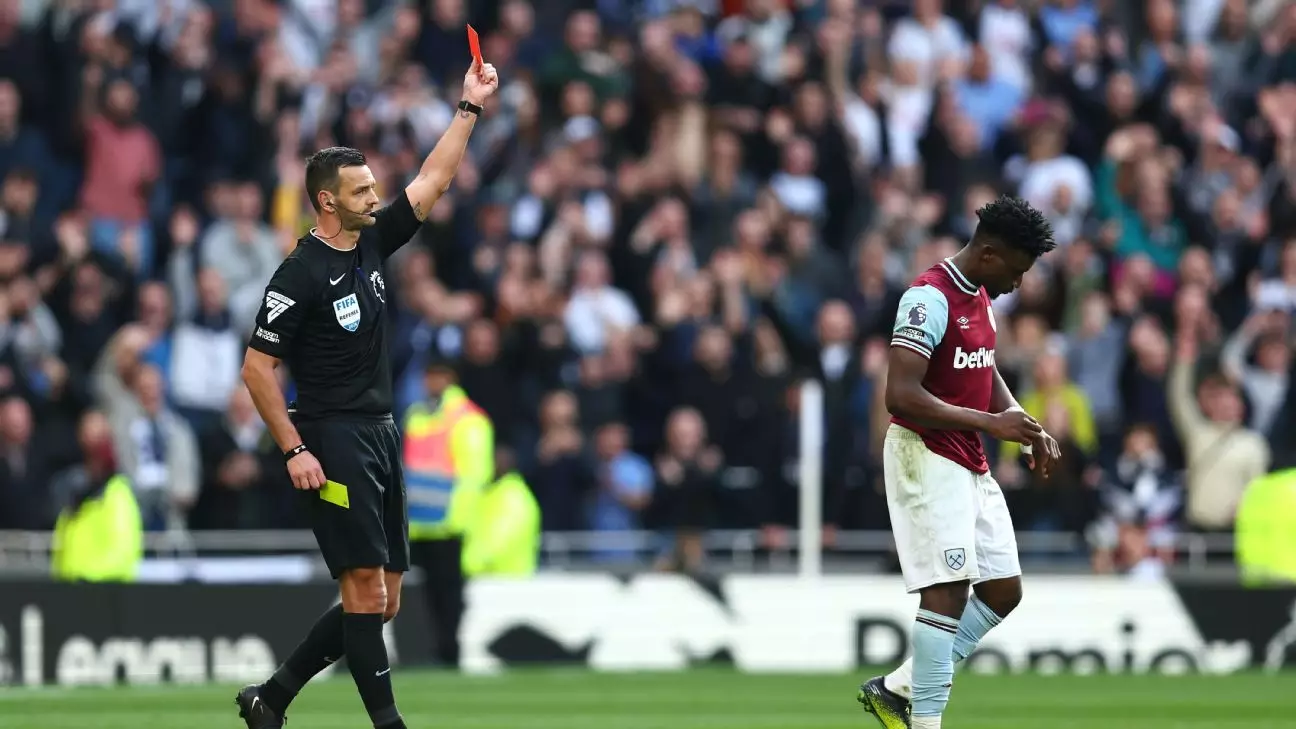West Ham United winger Mohammed Kudus faced severe repercussions for his actions during a match against Tottenham Hotspur on October 19. Initially shown a yellow card for his foul against Spurs defender Micky van de Ven, Kudus escalated the conflict by pushing van de Ven and then another player, Pape Matar Sarr, in a display of unsportsmanlike conduct. This confrontation not only marred the game but prompted referee Andy Madley to reconsider the severity of Kudus’ actions after a VAR review, leading to an upgraded red card and a standard three-match suspension.
This incident brought to light the ongoing issue of player conduct in football, drawing attention to the need for stricter enforcement of disciplinary measures. Such behavior detracts from the integrity and spirit of the game, raising questions about the responsibility players hold in maintaining a positive athletic environment.
Extended Suspension and Financial Penalties
Following an independent Regulatory Commission’s assessment, Kudus received an extended ban, ensuring he would miss a total of five matches and incur a hefty fine of £60,000 (approximately $77,286). This extension is significant, emphasizing the governing body’s commitment to combat violence on the pitch. Kudus’ actions resulted in his absence from crucial matches, including fixtures against heavyweights like Newcastle United and Arsenal.
Football clubs are increasingly held accountable for their players’ behaviors, a precedent set by West Ham United being fined £30,000 for their failure to control player conduct during the incident, while Tottenham received a £20,000 fine. Such financial repercussions can be damaging to club reputations and highlight the importance of fostering professional conduct among players.
Player Accountability and Future Implications
Kudus’ admission of guilt and his expression of regret, stating he felt “deeply embarrassed” about his actions, shed light on the personal ramifications of such violent behavior. However, apologies must be backed by tangible changes in how players conduct themselves on the pitch. With increased scrutiny from governing bodies and the media, the expectation of player accountability is rising.
The additional matches Kudus will miss serve as a harsh reminder of the consequences of losing control, not just for him, but for players across the league. By imposing strict penalties, regulatory bodies encourage players to think twice before engaging in confrontational behavior. It serves as a crucial lesson in discipline, professionalism, and respect for the game.
The sanctions imposed on Mohammed Kudus demonstrate the serious nature of violent conduct in sports. Through these measures, the governing bodies of football not only seek to protect the integrity of the game but also make it clear that such behavior is unacceptable. As the landscape of football continues to evolve, it emphasizes the importance of maintaining decorum to uphold the essence of competition—one that is rooted in respect, sportsmanship, and fair play.

